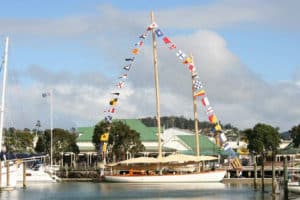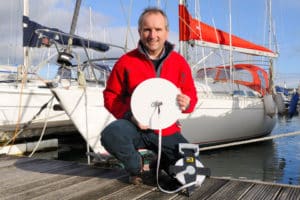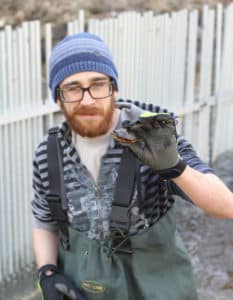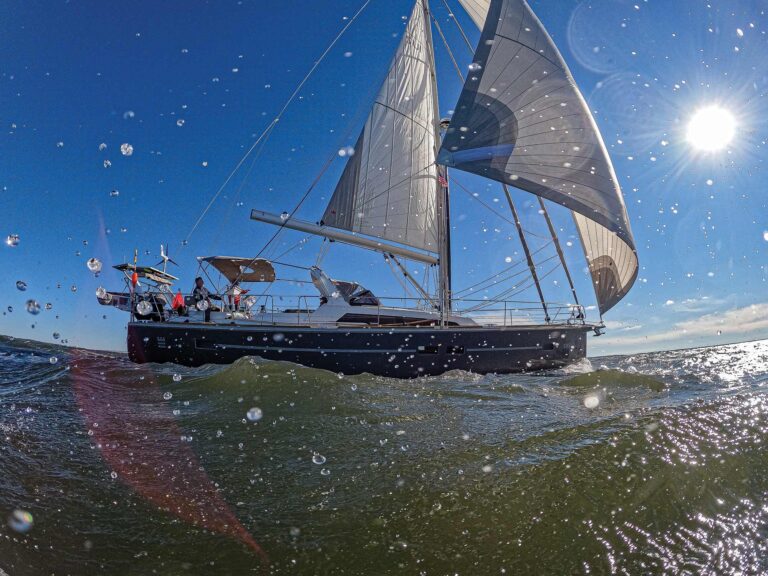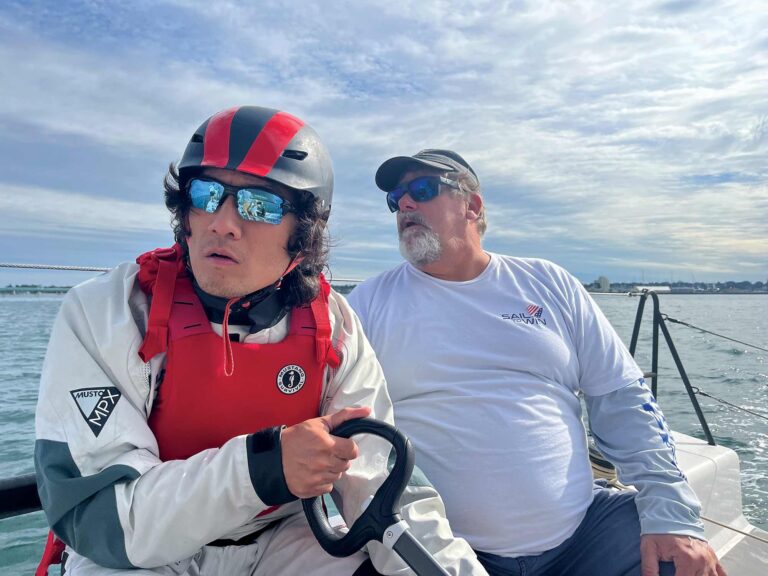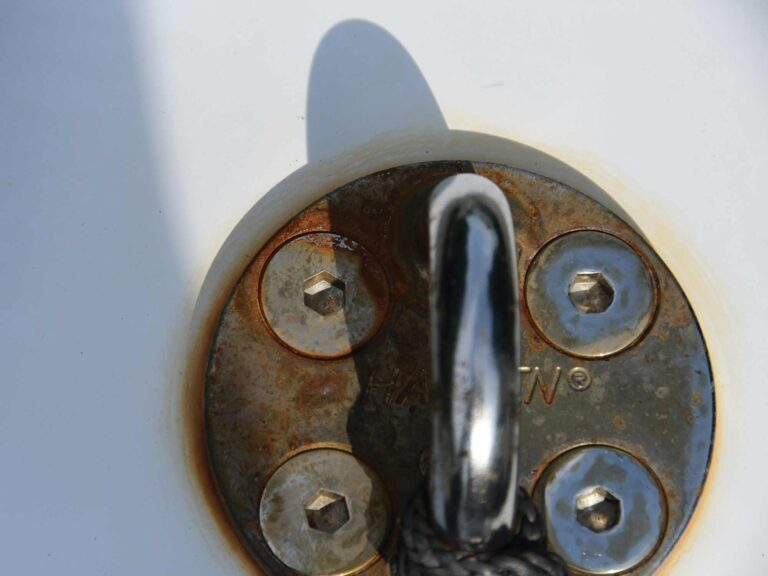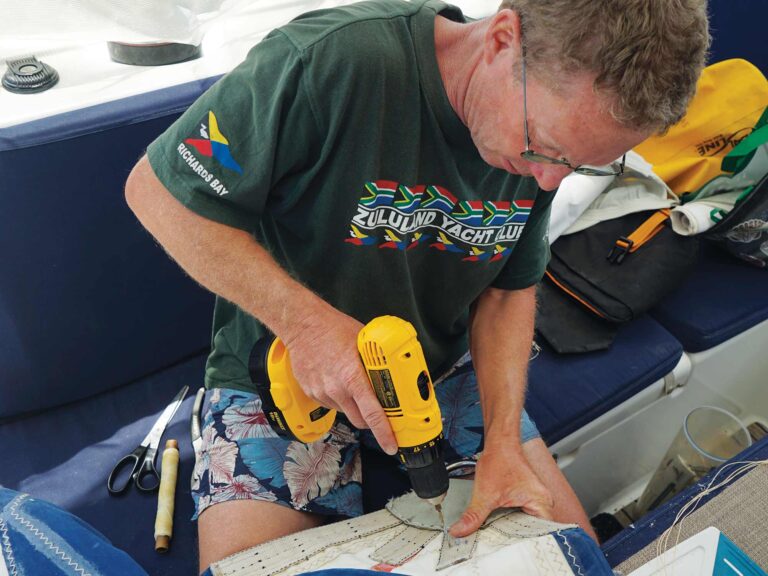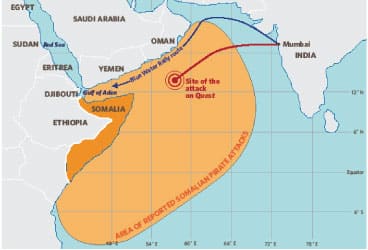
Map of Quest Attack
It must have been a horrifying few seconds as they were shot. I knew Scott Adam. He was a problem solver, a can-do sailor, a man’s man. He wouldn’t have panicked. He was a strong, calm, thoughtful person. As captain, he knew he set the tone. “Be calm,” he must’ve told himself as the ordeal unfolded. Scott was, above all, a man of logic. He would’ve been reassuring his wife, Jean, and their friends, Phyllis Macay and Bob Riggle, that, hey, sure things seemed kind of grim, but they’d be OK. They’d be OK, be OK, be OK. The U.S. Navy warship wouldn’t fire upon them. The pirates wouldn’t kill them. After all, they were hostages. And hostages are only useful alive, not dead.
Every bit of logic and rational thinking—every bit of risk assessment—must’ve reassured them all that this was just another experience. Just another event. Just an amazing tale, an adventure to eventually tell their family and their friends and their minister: Captured by Somali pirates, wow!
But it must also have been chaos. Nineteen teenagers aboard the Adams’ boat, Quest, none of whom probably knew how to use a toilet let alone a marine head. Young African kids with large, sophisticated, Western weapons. Kids who were high on drugs. Nervous. Scared. Angry. Worried. Happy. Jubilant. Thrilled. Victorious. Proud. Terrified. And a few so dumb that they weren’t able to parse the difference between macho posturings and group suicide.
I don’t doubt that Jean both scolded and advised the youngsters. Jean was like that. She only saw the good in a person. At first, when they’d been captured three days earlier, on February 19, there must have been worries about rape and torture and the possibility of separation from Scott, but by now she’d have been reassured. These kids were just more of God’s children. Jean believed in God. He was close to her. The Adams had a bilge full of Bibles. She was probably just hoping that no one would get hurt. Not them. Nor anyone from the U.S. Navy. Nor any of the youths aboard.
That’s how she’d have thought of them, as youths. She was used to “youth groups” at church. Drugs were a mystery to her. Violence was an unknown. Jean was just a child of God, and they were just God’s children, so how could it end badly?
No, Jean would’ve been upbeat and optimistic and can-do. She would’ve been giving them dietary advice and scolding their messiness; you know, the usual mother/kid stuff.
There were probably even a few laughs, some shared humanity. It was impossible not to love Jean, she was so pure and simple and straight ahead in her beliefs. So sincere. So trusting. Sure, there was evil in this world, but she believed that goodness, properly applied, would always win. Wouldn’t it?
But still, it must have been terrible: 19 pirates, the boat thoroughly ransacked, threats, guns pointed, backs prodded, ropes tied. Tears. Screams.
Scott would’ve been measuring up the kids. He’d have been learning all he could from them. He was a thinker, an evaluator. Which of them were nice, which nasty. Who was a sadist? Trigger-happy? A leader? A follower?
Scott’s eyes would’ve been everywhere. He wouldn’t have said much, just watched and thought, “Don’t panic. Don’t do anything to set them off. Just cooperate. Must get Jean through this. Must get Phyllis and Bob through this. Must. Must!”
After all, Scott was still the captain. And a captain always carries the responsibilities of the vessel and the crew upon his or her shoulders. Scott’s shoulders were broad. I’m sure he was captain right up to the end, when the shots rang out, until death embraced.
My wife, Carolyn, and I met Jean and Scott in New Zealand’s Bay of Islands in 2006, on the dinghy dock of the Opua Cruising Club. They were excited about setting off on their first circumnavigation and peppered us with questions. But the first thing they did, as was their loving nature, was to compliment us. “We feel like we’ve known you for years, Fatty, because we’ve read of your adventures in Cruising World many times.”
That’s the kind of people they were, always saying something nice and positive and nurturing to friend and foe alike.
We never became best friends. We were both busy getting ready to head north toward Tonga and Fiji and, in a year or two, the Indian Ocean. But we bumped into them a couple of times more, enough to admire and respect them and all the ocean miles they’d sailed together.
“It’s my favorite ocean,” I told them, when questioned about the Indian Ocean region. “You’ll love it. There’s plenty of wind and many, many different cultures. Best place in the world!”
Scott smiled.
They loved their boat. Quest was a 58-foot Davidson that they’d had custom-built for them in New Zealand. They were proud of her, and both Scott and Jean talked about how strong and safe and sturdy she was.
Yes, Quest was strong, but we humans are weak. We’re just flesh and blood and bone. And, according to the Adams, a spark of God.
Perhaps the worst, most difficult part for them—the only thing we really know is that we’ll never know—was the bickering and dissension among the pirates. The pirates have no plan. They’re just kids, just punks, just dumb-ass gang members. All the pirates could think about was getting someone, kidnapping someone, attacking a ship, being a hero, and, most of all, being rich.
Each kid would be paid around US$2,000 if all went well and the ransom was collected (for perspective, the average yearly income in Somalia is less than half that amount). That’s what the kids who guarded our friends Sabine and Jurgen Kantner, of Rockall, for 58 days were paid. (See “A Cruel Twist of Fate,” On Watch, March 2010.) And from what I understand, similar amounts were paid to the cruel young men who guarded the Chandlers, a British couple also held in Somalia, in their case for a year.
Wow, $2,000! Why, that’s all the money in the world, isn’t it? They’d buy a whole wheelbarrow of khat and share it with their whole village. That would be fun. And girls! They’d buy some girls, too, pretty ones. And maybe one of those large-screen TVs or a Sony PlayStation.
Holding hostages would gain them some respect. Until, that is, the U.S. warships turned up and spoiled everything.
What to do, display the hostages? Shoot one in the leg, like in those cool gangsta DVD movies?
Still, the arrival of the U. S. Navy must’ve buoyed the hopes of the hostages. Perhaps it was almost over. Scott was probably thinking, hey, maybe Quest will come out of this without too much damage. Maybe this would end soon and they’d go aboard the Navy boat, have a steak and a beer, and meet the captain and the chaplain.
But that’s not what happened as they approached the coast of Somalia.
As CW goes to press, we’re not sure of the events surrounding Quest on that February 22. But we do know that the pirates were in negotiations and that the officers of the USS Sterett were in direct communications with them. It seemed to be going well, but some of the pirates must have been panicking. And one of the pirates was particularly stupid. He figured he had to show ’em he wasn’t scared. His hands shook as he hoisted the shoulder-fired missile up and fired directly at the warship only a few hundred meters away. The target was huge, but he missed.
And then, things happened fast. The kids (I mean, the pirates) panicked completely, I’d guess. I’m sure that Scott realized what was happening and attempted to calm things down, but there was no backing down. It only took a few seconds, but it must have felt like an eternity to Jean and Scott and Phyllis, and Bob.
They heard the rocket go off, a deafening sound. There was jostling. Screaming. Shouting. A gun went off in the confining, tiny space that was Quest‘s cabin.
A body fell. Someone else opened fire. More bodies fell.
Two pirates and four hostages lay on the cabin sole. Bleeding. Dying. At least two of the hostages were alive and conscious for some time afterward. We can only imagine what must have been going through their minds—the stuff of nightmares.
The U.S. Navy did the best it could. On Sterett, they weren’t expecting anything savage precisely at that moment. It was early morning, and the two sides were talking. But barefoot boys with large weapons and lots of khat often do stupid things that make no sense. The U.S. Navy had just been fired upon by Quest with a rocket. A disorganized group of pirates came topside, raised their hands as if in surrender, and moved forward to the sailboat’s bow, just as, or just after, gunfire erupted from belowdecks aboard the yacht.
The U.S. Navy officers decided to board the yacht immediately to attempt to prevent further bloodshed. They rushed over and dashed below. One pirate was shot inside the cabin as they entered. It was chaos. People were crying, moaning, screaming, dying. A pirate lurched at one of the naval rescuers and, in the ensuing knife fight, was stabbed to death.
The story of the events aboard Quest are the definition of tragedy. Everyone lost. Four pirates were dead, and the rest will, I hope, rot forever in jail. Jean, Scott, Phyllis, and Bob are dead. The rescuers, who risked their lives and did a superb job under stressful, bloody conditions, will forever think of what could’ve been done differently.
The world and our community of cruisers have lost four wonderful people; Carolyn and I have lost two friends. They were sea gypsies who died doing what they were born to do and loved to do best. Don’t judge them; don’t second-guess their decision to roam the high seas. They had every right to be free, loving, and out upon the ocean, sailing through God’s own watery cathedral.
They were doing nothing wrong. It was the pirates who had evil in their hearts, not Jean or Scott or Phyllis or Bob.
The pirates are to blame, no one else.
Jean recently wrote on her blog, “We were so unhappy being ‘dirt dwellers’ during our time in the States that another floating abode had to be acquired.”
There was seawater and love and faith in their veins, and poetry too. Jean wrote of cruising in Fiji, “We’re going to open these islands like the petals of a flower.”
What soft, romantic imagery. What nice people. What a horrible, horrible thing—a completely pointless and stupid and cruel thing—to have happen to them.
Cap’n Fatty Goodlander is the author of Red Sea Run_, which chronicles a 2010 transit of the Gulf of Aden aboard a small yacht._

